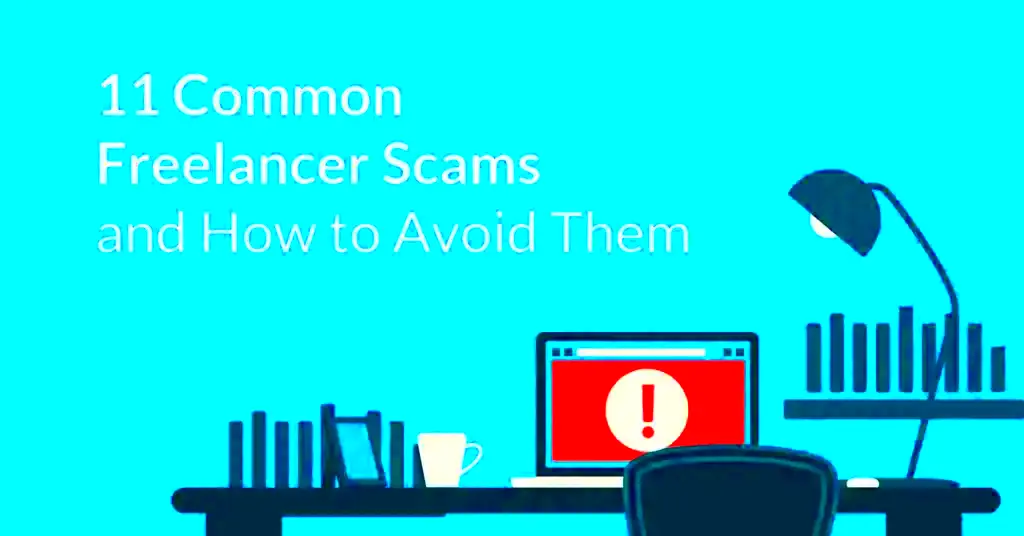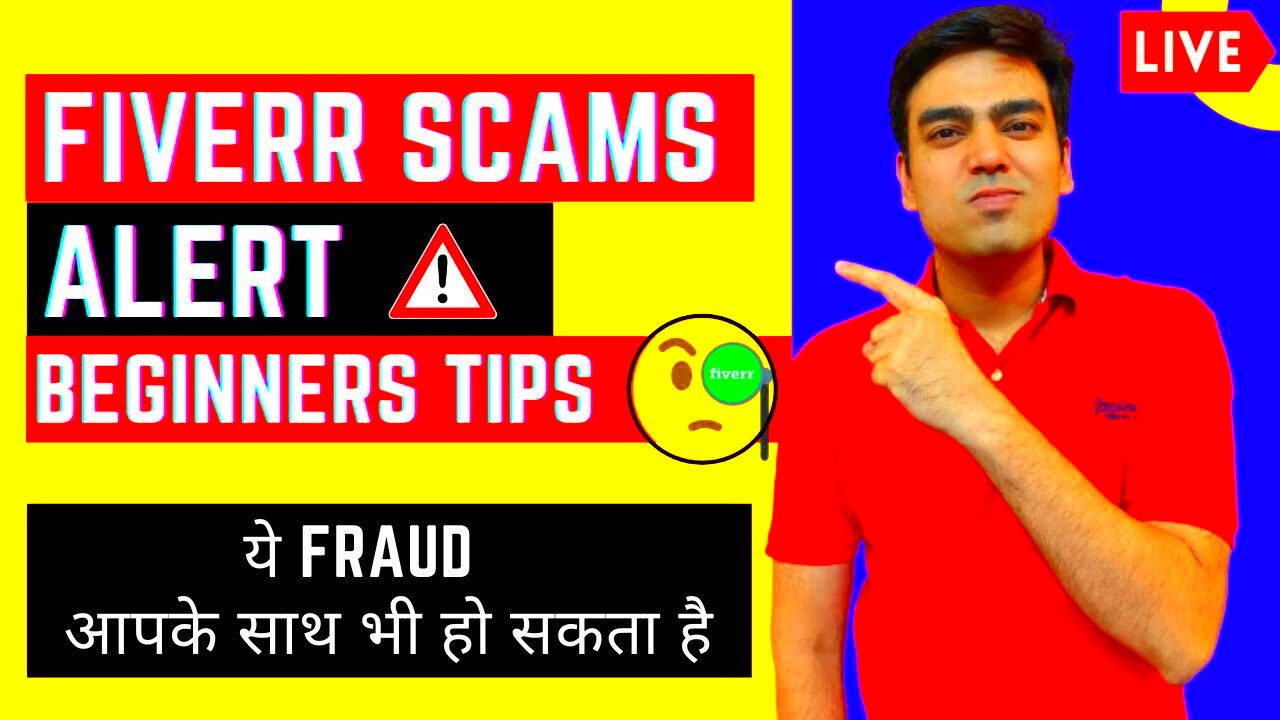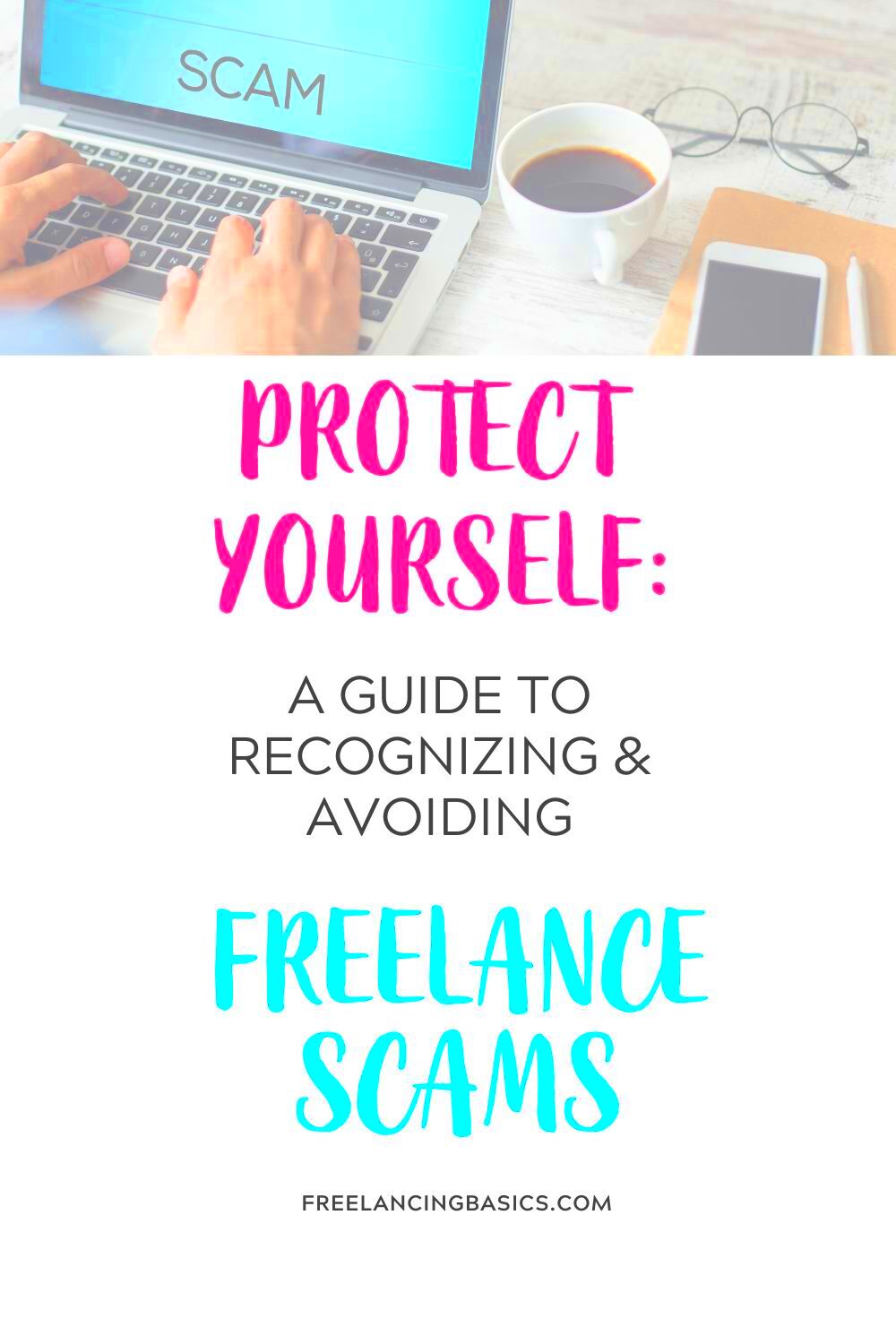Freelancing offers flexibility and independence, but it also comes with risks. Scams can target freelancers of all experience levels. Understanding these scams is the first step in protecting yourself. Common types of scams include:
- Non-Payment Scams: Clients may disappear after receiving work without paying.
- Fake Job Offers: Some listings may seem legitimate but lead to phishing attempts.
- Advance Fee Scams: Clients might ask for upfront payment for materials or software.
- Overpayment Scams: A client sends a check for more than the agreed amount and requests a refund.
By being aware of these scams, you can take steps to protect your freelance career and finances.
Recognizing Red Flags in Job Offers

Knowing how to identify red flags in job offers can save you time and money. Here are some signs to look for:
- Unrealistic Pay: If an offer seems too good to be true, it probably is. Be cautious of high pay for low-effort tasks.
- Lack of Company Information: Legitimate companies usually provide their website and contact details. If there is none, be wary.
- Vague Job Descriptions: If the job description lacks specific details about tasks or responsibilities, it may indicate a scam.
- Pressure to Act Quickly: Scammers often create a sense of urgency. Take your time to research before making decisions.
Staying alert for these red flags can help you avoid falling victim to scams.
Also Read This: How to Get My First Job on Fiverr
Tips for Verifying Clients and Job Listings

Before you accept a job, it’s crucial to verify the client and the job listing. Here are some effective tips:
- Research the Client: Look up the client’s name online. Check their reviews and past projects.
- Ask for References: Don’t hesitate to ask the client for references from previous freelancers.
- Use Trusted Platforms: Stick to well-known freelance platforms that have built-in verification processes.
- Check for Secure Payment Methods: Ensure the client uses a secure payment method to protect your earnings.
- Review the Contract: Always read the contract carefully. If something seems off, ask for clarification.
Following these tips can help you feel more secure in your freelance work and minimize the risk of scams.
Also Read This: Top Fiverr Sellers for Nutrition Advice in 2024
Using Secure Payment Methods to Protect Yourself

When freelancing, choosing the right payment method is crucial for your financial safety. Using secure payment methods can protect you from scams and ensure you receive your hard-earned money. Here are some secure payment methods you should consider:
- Escrow Services: Many freelance platforms offer escrow services that hold the payment until you complete the job. This ensures that you get paid before the client receives the final work.
- PayPal: PayPal offers buyer and seller protection, making it a popular choice among freelancers. Just be sure to send invoices to keep a record of the transaction.
- Direct Bank Transfers: While bank transfers are secure, make sure you trust the client completely before sharing your bank details.
- Payment Processors: Services like Stripe or Payoneer offer secure transactions and can protect your information.
Always avoid payment methods that seem questionable, like sending cash or using money transfer services that don't offer buyer protection. Protect yourself by setting clear payment terms and only accepting payments through trusted channels.
Also Read This: Does Fiverr Post to LinkedIn?
Building a Strong Portfolio to Attract Legitimate Clients

Your portfolio is your best marketing tool as a freelancer. A well-crafted portfolio showcases your skills and helps you attract quality clients. Here are some tips for building a strong portfolio:
- Highlight Your Best Work: Select projects that demonstrate your expertise. Quality over quantity is key.
- Showcase a Variety of Skills: Include different types of work to show your versatility. This appeals to a broader range of clients.
- Use Clear Descriptions: Describe each project briefly, explaining your role and the results achieved. This gives context to your work.
- Update Regularly: Keep your portfolio fresh by adding new projects and removing outdated ones.
- Consider a Personal Website: Having a dedicated website for your portfolio can enhance your professionalism and makes it easier for potential clients to find you.
By investing time in your portfolio, you increase your chances of attracting legitimate clients and securing more work.
Also Read This: Where Is Fiverr Intro Software?
Staying Safe on Freelance Platforms
Freelance platforms can be a great place to find work, but it's important to stay safe while using them. Here are some tips to help you navigate these platforms securely:
- Use Strong Passwords: Always use strong, unique passwords for your accounts. This helps prevent unauthorized access.
- Enable Two-Factor Authentication: If the platform offers it, enable two-factor authentication for an extra layer of security.
- Research Platform Policies: Familiarize yourself with the platform's policies regarding payments, disputes, and client interactions.
- Beware of Off-Platform Communication: While it’s common to communicate with clients, be cautious of those who push to move discussions off the platform. This can lead to scams.
- Report Suspicious Activity: If you encounter any suspicious behavior, report it to the platform immediately. Most platforms take these issues seriously.
By following these safety tips, you can enjoy the benefits of freelancing while minimizing your risks on online platforms.
Also Read This: How Much Should I Charge as a Freelancer
Reporting Scams and Fraudulent Activity
If you encounter scams or fraudulent activity while freelancing, it's crucial to report them. Reporting not only helps protect yourself but also safeguards other freelancers from falling victim to the same scams. Here’s how to effectively report scams:
- Document Everything: Keep a record of all communications, including emails, messages, and contracts. This information is valuable when filing a report.
- Contact the Platform: If you’re using a freelance platform, report the scam through their official channels. Most platforms have procedures for dealing with scams.
- Alert Payment Processors: If you suspect a payment-related scam, inform the payment processor you used, such as PayPal or Stripe. They can assist in protecting your account.
- Notify Authorities: For more serious scams, such as identity theft or significant financial loss, report the incident to local authorities or your country’s consumer protection agency.
- Share Your Experience: Consider sharing your experience on freelance forums or social media. This raises awareness and can help prevent others from being scammed.
By taking action and reporting scams, you contribute to a safer freelance community. Remember, the sooner you report a scam, the better chance there is of preventing further fraud.
Also Read This: How to Send Large Files on Fiverr
Frequently Asked Questions
Many freelancers have questions about scams and safety. Here are some frequently asked questions to help clarify common concerns:
- What should I do if I suspect a job offer is a scam? Trust your instincts. Research the client and their company. If something feels off, it’s best to decline the offer.
- Are there safe payment methods for freelancers? Yes, using escrow services, PayPal, and trusted payment processors can help ensure secure transactions.
- How can I protect my personal information while freelancing? Avoid sharing sensitive information, such as your home address or banking details, unless absolutely necessary and only with trusted clients.
- What actions can I take if I’ve been scammed? Document everything, report the scam to the platform and payment processor, and inform local authorities if necessary.
- Can I recover lost funds from a scam? It can be difficult, but contacting your payment processor immediately can help. They may have measures in place to assist you.
These FAQs can guide you in navigating the freelance world more safely and confidently.
Conclusion
Freelancing can be a rewarding career choice, but it's essential to remain vigilant against scams and fraudulent activities. By understanding common scams, recognizing red flags, and using secure payment methods, you can protect yourself and your earnings. Building a strong portfolio and staying safe on freelance platforms further enhances your security and professional image. Remember to report any scams you encounter to help protect others in the freelance community. With the right knowledge and precautions, you can enjoy a successful freelance career while minimizing risks.




